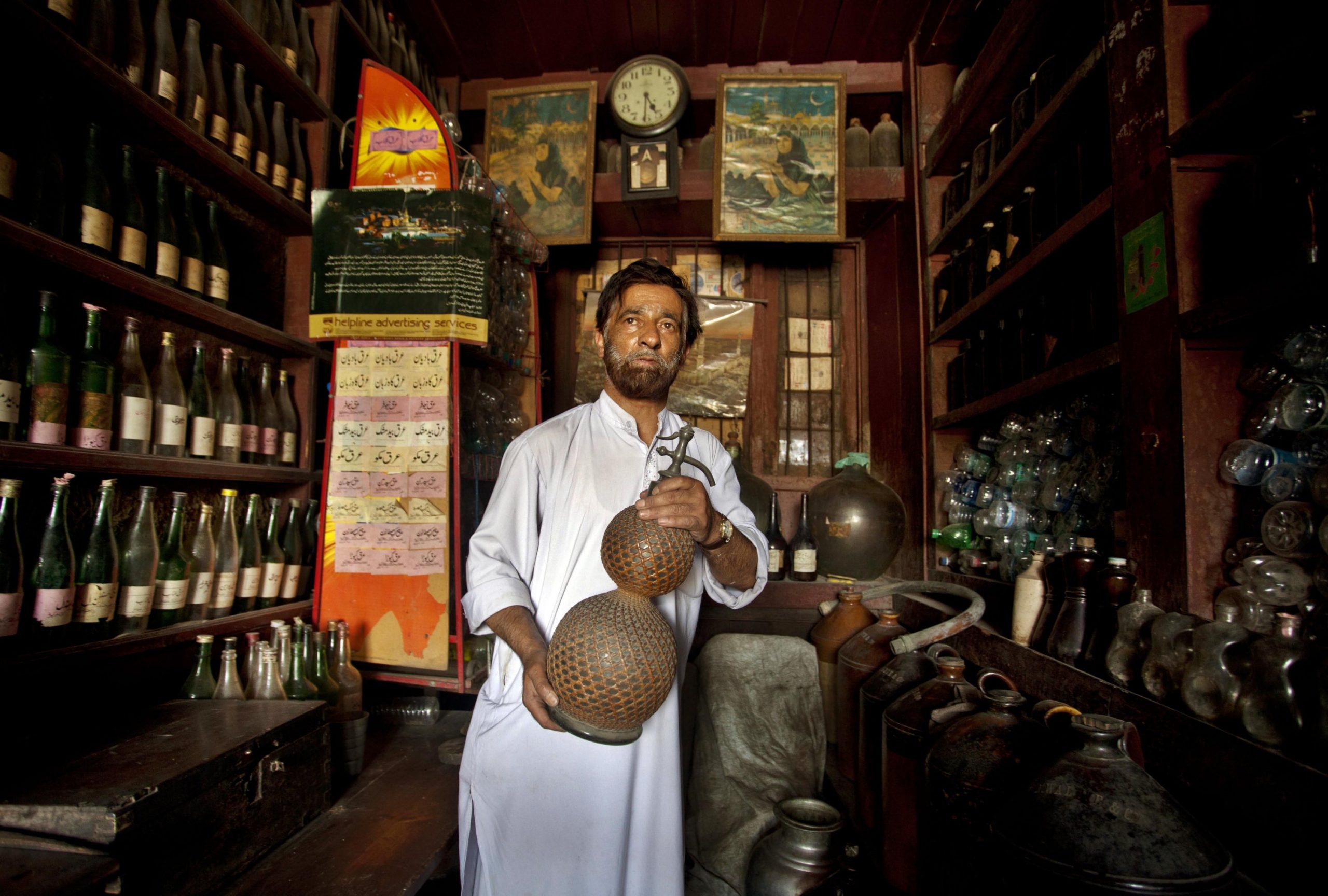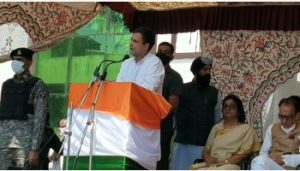
Kashmir’s lone rose water maker Abdul Aziz Kozgar, scents uncertain future
Declining sales, insecurity in Kashmir have dealt blow to Abdul Aziz Kozgar’s business
The sweet smell of rose water filled the air as Abdul Aziz Kozgar opened the shutters of his nearly 100-year-old shop in Srinagar for another day of business that has been hit by a sharp decline in sales over recent years.
Wearing a skull cap and a loose kurta salwar, the traditional dress of most Kashmiri men, Kozgar smiled when reminded of his status as the last rose water maker in Srinagar, skills he acquired from his forefathers who moved to the Kashmiri capital from Turkey more than 500 years ago.
“You will not get this kind of shop in Kashmir because this trade (of handmade rose water) was started by our forefathers 400 to 500 years ago,” the 60-year-old father-of-three told Kashmir Post.
“They came to Kashmir from Turkey and settled down here and it has been going on since then,” he said. Located in old Srinagar’s Khanqah-e-Moula area, from the outside the old-fashioned arq-e-gulab or rose water shop that Kozgar is the sole proprietor of resembles an abandoned building with broken windows and weathered paint.
The only light source comes from the front window, which opens to the main road facing the 14th-century Khanqah-e-Moula mosque.
“This shop is over 90 years old, but there was one shop older than this inside the old house which was running since the beginning of the 19th century. It had a special room for making rose water. After the new house was constructed, this shop was moved forward to face the road,” he added.
The hole-in-the-wall store contains a treasure trove of secrets in tall glass bottles.
Every morning, Kozgar fills the bottles with rose water from three to four plastic containers, which he carries back in the evening after selling his products.
While some of the jars are filled to the brim with Pantone-colored rose water, most are empty, dating back almost 200 years ago. Markings on the jars state their place of origin as Britain and France and Kozgar revealed that they were imported by his forefathers “to keep the rose water cool and its aroma intact.”
But they have never traded hands – customers must provide their own containers for the rose water – and Kozgar pointed out that he had no plans to sell the empty bottles.
“They are lying there because they have a past. These jars will keep the rose water cool. We never used a refrigerator for it. I’m proud of the collection.”
Declining sales due to a lack of interest in handmade rose water and insecurity in Kashmir have dealt a heavy blow to Kozgar’s business, leaving him facing an uncertain future with limited means to revive output or reinvent the craft.
“Periodic strikes, curfews, and the closure of shops have affected business, and we have all suffered as a result. Also, with artificial rose water easily available in the market, people don’t bother to come to the shop anymore,” he said.
Those that did were regular customers who used the water at shrines and religious places. “Some buy it as a gift or for cooking. It’s special because the smell makes people feel nice,” he added.
Compared to machine-made rose water, Kozgar’s produce is cheap. For one liter he charges 40 Indian rupees (54 US cents), while the artificially made liquid can cost more than $5 for 100 milliliters.
Srinagar-based grocery shopkeeper Aman Bhat said the price difference was because traders had to pay tax for branded rose water in addition to high production costs. “I think the way you make it determines the price structure.”
Advertisement
For Kashmiri Products – Do visit us at www.KashmirStore.in
Kozgar said that his rose water was distilled from koshur gulab (Kashmiri roses) sourced from various parts of the valley. “I don’t use any machines for it; that’s all I can tell you.”
His limited capacity to produce rose water manually had also impacted sales.
“My customers are mostly elderly people. But when a younger customer comes to my shop, they understand the value of my shop and become regular customers. They are surprised that my rose water is so cheap,” he added.
A graduate and practitioner of traditional medicine, Kozgar joined the profession in his 20s because his father, Habibullah, was “keen on his children carrying forward the legacy.”
He said: “I joined the profession voluntarily. My father wanted me to keep this legacy alive in the memory of my forefathers.”
As for the next generation carrying forward the family tradition, he was not so sure. “Who will run this business where there is hardly any profit? The amount of rose water that comes after using five to six kilograms of roses is much less, and that is not business-friendly.
“I definitely want them to continue the tradition, but I will not force my kids to run the shop. It’s uncertain what is going to happen after me,” he added.

